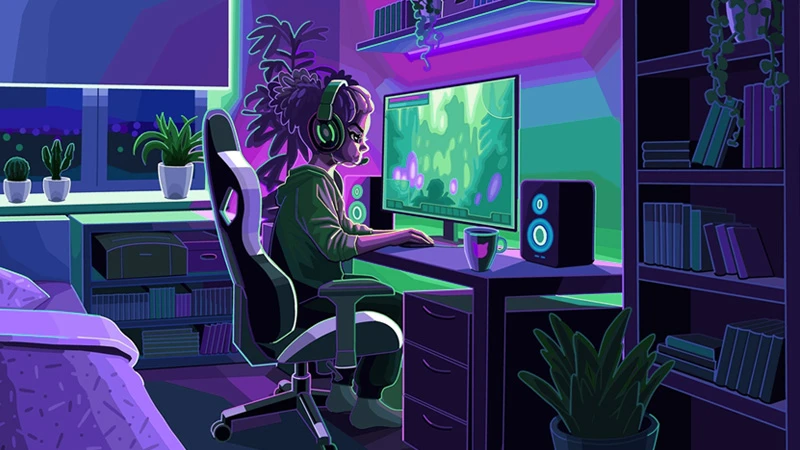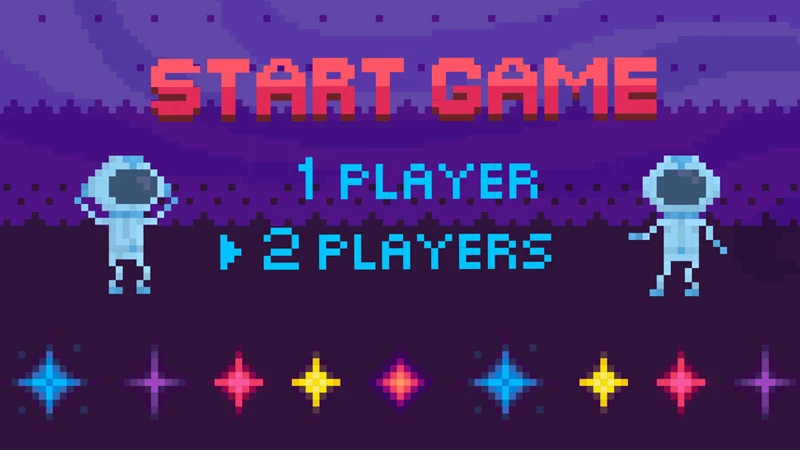- Insights
- People & Culture
- Article
The game-changing potential of diversity in player support

Great games, though they are so often set in far-off, imaginative worlds, have a knack for creating a sense of belonging among their players.
Increasingly, this form of identification is further enhanced by a player's ability to find themselves among the thriving communities that populate games servers, online forums and platforms like Discord and Twitch.
That's not to say that there isn't still work to do in terms of immersion, however. Players need to see themselves and hear their voices reflected in the games they play, in the stories that games tell and, importantly, in the interactions they have with player support.
Fortunately, progress is being made, says Minh Tue Le Ngoc, senior consulting project manager at Newzoo, a market research firm focused on the games industry.
"Game publishers and developers are striving to make their titles more diverse and accessible and cater to these diverse audiences," says Le Ngoc, who has spent the past few years researching diversity, equity and inclusion in the industry.
With more than 3 billion gamers in the world today, diversity in gaming is not a problem to solve, but an asset to embrace. Let's explore the game-changing potential for diversity in player support.
There's demand for diversity in gaming
In speaking with TELUS International, Le Ngoc shared examples of games companies leaning into diversity.
"A lot of the big AAA title publishers that are known to traditionally make more male-dominated genres, are [now] featuring more diverse characters, whether that's in terms of ethnicity, sexuality and so forth," she adds, pointing to EA's blockbuster FIFA franchise, whose 2023 release included women's clubs in the game for the first time.
And in 2021, Visual Concepts put WNBA forward Candace Parker on the cover of its NBA2K22, the first time that a woman has graced the franchise's cover since it began in 1999.
But, she continues, "there's still a lot of room for improvement to make sure that the games that we see today also reflect today's diverse society."
This room for improvement is backed up by industry research. Newzoo's 2021 study, Diversity and Inclusion in Gaming: Insights and Opportunities, reports that 47% of U.S. gamers do not play games they feel aren't made for them.
Where there is room for improvement, there is opportunity. And although games companies are embracing diversity with the subject matter of their titles, the opportunity also extends to their player support operations
Diverse player support for a better player experience
Player support is a vital part of the player experience.
Your player support team is your community's primary touchpoint, and they play a huge role in keeping players motivated and engaged within a game. What's more, they help create safe spaces and protect players from toxic content, particularly in the context of content moderation.
According to a TELUS International survey, four in ten respondents say they lose all trust in a brand after just two or three exposures to toxic user-generated content. However, not everyone on your support team is going to read toxic content in the same way. Context matters, and diverse teams with a wider range of perspectives and experiences bring a sense of cultural context and empathy to player concerns.
Someone from a minority group or marginalized background is more likely to "understand the specific issues that you might deal with that a typical cis male, for example, might not encounter in their day-to-day life," says Le Ngoc.
Advantages of diverse player support teams
Beyond trust and safety elements, there are several reasons why diversity can be an asset to your player experience.
Offering empathetic support
Players are looking to feel heard and understood. "Having a diverse team means that they also understand the diverse player base a lot more," says Le Ngoc. That extends to thinking about how to make games more accessible as well. Le Ngoc adds that a diverse team "makes the whole gaming experience feel a lot more inclusive and welcoming for all and this can, in turn, also lead to higher engagement and make it more appealing to a wider audience."
Attracting a wider player base
To build off of Le Ngoc's insights, the potential to appeal to a greater pool of players is good for business. When your player experience is empathetic, you convey to a wider potential market that you'll provide top-tier support should players ever need it.
Extending multilingual support capabilities
If you want your game to appeal to people all around the world, only offering support in one language might undermine your ambitions. If you look at your player experience operation holistically, offering support in the languages spoken by your players sends the message that you care about reducing confusion and frustration — and getting players back into the game.
Maintaining a consistent player experience
By incorporating a range of different perspectives and approaches, a diverse support team can ensure a more comprehensive and consistent support experience that caters to different player needs and preferences. Just as agents who game are best suited to offer support to gamers, diverse teams are best suited to support diverse player communities.
Promoting diversity of thought
With a dynamic culture and a diverse team of games experts, brands benefit from greater diversity of thought. That means you'll have an environment that allows for the identification of blind spots and a steady flow of different ideas and innovations that could make a real, measurable difference to your strategies, practices and most important metrics.
Provide the support your diverse player community deserves
Games companies who set out to deliver loyalty-building player experiences must not forget the basis of player support: Players want to feel understood. To do that effectively — for a global and diverse player community — games companies need to mirror that diversity back from within their player support operations.
Of course, it's not always easy to figure out how to offer the diverse player support your community deserves. Where should your support operations be based? What languages should agents speak? What backgrounds, skillsets or characteristics will suit them best in supporting your players?
The questions and challenges are difficult to address alone. To help build more diverse teams, some studios look to partner with companies that can help them scale their support and services while preserving their culture and values. That last piece is critical: A good outsourcing partner will help to maintain and improve your culture, not detract from it
TELUS International has thousands of games support team members around the globe, as well as the expertise and ability to design, build and deliver player support strategies that work for you. Having won numerous awards for diversity, representation and team member engagement, you can back your operation with the diverse team your community deserves. Contact our games industry experts to learn more.



